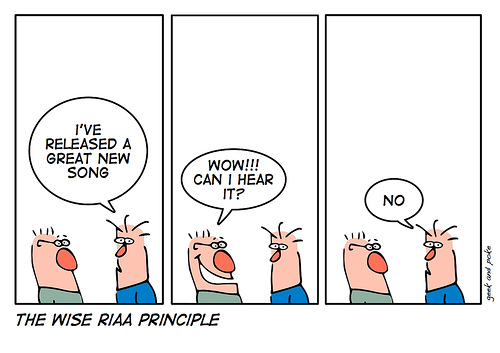In the USA, an anti-piracy agreement may be concluded between the RIAA, the MRAA and the country's largest providers.

More recently, it became known that all the “beloved” Recording Industry Association of America (RIAA) and the Motion Picture Association of America (MPAA) are close to signing an “anti-piracy” agreement with the largest US providers (including AT & T, Comcast, and Verizon) . As is known, it is the RIAA with MPAA that are the most active participants in the anti-piracy movement, who for years have been suing those who dared to download a movie or music using file-sharing technologies. So, these associations, it turns out, for several years have been preparing a program to combat piracy, in which one of the main roles belongs to providers.
The scheme, in general, is not new - the provider, who agreed to participate in the anti-piracy program, watches clients download. If a case of illegal downloading of a game, music, or film is detected, the provider notifies the violator in writing that
')
For example, the width of the channel for a specific user may be limited, or the user's access to the network is limited to 200 of the most popular legal resources. Well, if a malicious recidivist is caught, then he can be completely disconnected from the Internet. In general, all this is similar to the scheme operating in France. Everything seems to be there - the user receives one warning, then the second, and finally, the third, final, followed by a disconnection from the Network.
The scheme in force in France has been criticized since its inception in the form of a bill. According to experts, the scheme is “leaky” and can only serve as something of a scarecrow, without presenting a real threat to a more or less advanced user.
However, the project of interaction between US providers and copyright holders, as mentioned above, is at the signing stage (maybe already signed). The US government supports the initiative, since it is believed that "copyright is one of the incentives for the development of the US economy." In general, there are quite a lot of resources in the United States now that offer movies and music at a reasonable price for quite legitimate reasons, so such a scheme, if implemented, may well produce results, and the number of “pirates” will drastically decrease. In any case, the authors of the project think so.
Via CNET
Source: https://habr.com/ru/post/122792/
All Articles